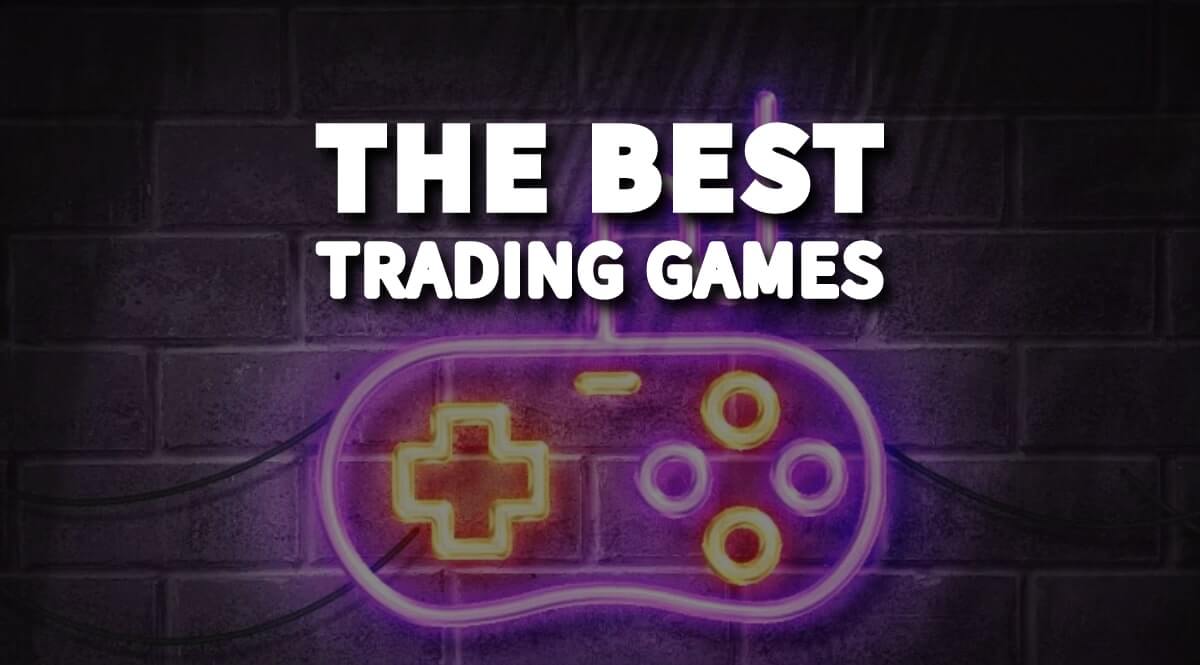
The Best Trading Games You Should Try
What do you think of trading games? Have you ever played one?
There is no lack of trading games. It is better to focus on the best trading games. However, let’s first learn more about trading games.
Trading games, often under the category of economic or strategy games, simulate real-world trading scenarios where players buy, sell, and trade goods, assets, or virtual items.
They range from simple board games to intricate online multiplayer platforms. If you’re in the market for a trading game, you might feel overwhelmed by the array of choices. This guide will help you navigate the landscape and make a selection that suits your preferences.
1. Determine your purpose:
Firstly, decide why you want a trading game. Is it for leisure, to improve strategic thinking, to practice trading, or perhaps to get a basic understanding of real-world trading? Knowing your purpose will help narrow down the choices.
Educational: Games like ‘The Stock Market Game” can offer insights into how stock markets work, teaching players about investments, risks, and returns.
2. Solo or multiplayer:
Decide whether you want to play alone, with friends, or with online players worldwide.
- Solo: Opt for games with a robust AI or single-player campaign.
- Multiplayer: Look for games that can be played with family or friends, either on a shared board or device or over the internet.
3. Complexity level:
Trading games vary in complexity from simple exchanges to intricate economic simulations.
- Beginners: Start with games that have simple rules and short play times.
- Advanced: More complex games have intricate trading systems and steep learning curves.
Let’s continue!

4. Types of trading:
Different games simulate various trading environments:
- Stock market: Games like ‘Cashflow’ mimic stock market dynamics.
- Virtual Economies: MMORPGs (Massively Multiplayer Online Role-Playing Games) often have intricate trading systems where players buy, sell, and trade virtual items.
5. Duration of play:
Consider how much time you can dedicate:
- Short-term: Some games can be played in under an hour, suitable for a quick gaming session.
- Long-term: There are games that can involve hours or even days of investment.
6. Budget:
Trading games range from free-to-play online versions to premium board games. Determine how much you’re willing to invest.
7. Review ratings and feedback:
Before settling on a game, read reviews and feedback from other players. Websites like BoardGameGeek or gaming forums can be valuable resources. Look for:
- Playability: Is it enjoyable and replayable?
- Balance: Does the game offer a level playing field for all players?
- Bugs/issues: Especially for digital games, are there any technical issues or glitches?
8. Theme and aesthetics:
The theme can significantly impact enjoyment. Some games are set in historical contexts, while others might have a futuristic setting. Select a game whose theme and design appeal to you.
9. Adaptability and expansion packs:
For board games, check if there are expansion packs available. Expansions can extend a game’s life, offering new challenges and dynamics.
For digital games, consider the frequency of updates and the developer’s reputation for adding content.
10. Community and support:
For online games, a strong and active community can be a game-changer. Communities can help newcomers, provide tips, and even create their own modifications to the game.
Also, consider the support from developers or publishers. A game backed by responsive support can resolve issues faster, ensuring a smooth gaming experience.
The Purpose of Trading Games

Before discussing the best trading games, we need to discuss the importance of trading games.
Trading games, often known as economic or market simulation games, have long been a staple in the world of entertainment, captivating audiences of all ages.
The essence of these games lies in the transactional dynamics of buying, selling, and negotiating, emulating the principles of commerce that have been integral to human societies for centuries. The allure and purpose of such games can be understood by diving deep into the lessons they teach, the skills they hone, and the joys they bring.
- Understanding economic principles: One of the most educational aspects of trading games is their ability to instil basic to advanced economic concepts in players. From understanding supply and demand to mastering the intricacies of market fluctuations, players get a firsthand experience of what it feels like to operate within an economy. Games like “Monopoly” and “The Settlers of Catan” have, for generations, been teaching children and adults alike about asset management, strategic investment, and the unpredictability of markets.
- Strategic thinking & planning: Trading games are not just about transactions; they’re about devising a plan to outsmart the competition. Players must strategize on where to invest, when to sell, or how to trade effectively. Such decision-making exercises not only sharpen the mind but also teach patience, long-term planning, and risk assessment.
- Negotiation skills: Any seasoned player of trading games will tell you that the art of negotiation is at the heart of most transactions. Persuading others, striking beneficial deals, or even bluffing at times can be pivotal to winning. These soft skills are invaluable in real-life scenarios, be it in professional settings or daily life negotiations.
Trading Games and New Opportunities
In an era where digitalization often takes us away from face-to-face interactions, trading games, especially board-based ones, bring people together. They provide an avenue for families to bond, friends to reconnect, and strangers to become acquaintances. The camaraderie, the playful banter, and even the occasional rivalry add a rich layer of human interaction that many contemporary games lack.
Best Trading Games

There are many trading games. So, it is all but impossible to discuss all of them. So, let’s focus on some of the best ones.
Are you familiar with stock market games?
- One good option is the Virtual Stock Exchange. It is a trading simulation game with real-time pricing. Gamers have the opportunity to create their own customized game where other people or friends can join them without limitations. Importantly, gamers could also join another game in order to test their prowess against other gamers. To make a long story short, it’s a good platform that provides valuable information as well as tools to help you learn and test your strategies without risking your money.
- Investopedia Simulator is also a good option. Gamers can create or join someone else’s game. As a reminder, each game has a set of rules, such as enabling margin trading, etc.
- What about How The Market Works? It is similar to the vast majority of stock trading games. Traders can create a game, or they can join someone’s game. What makes How The Market Works different, though, is that it is designed for teachers to teach their students how to play the stock market.
- We need to mention Wall Street Survivor when it comes to the best trading games and best free trading games especially. So, it is a good game for people who would like to learn more about the stock market.
In conclusion, selecting the right trading game is a blend of understanding your objectives, preferences, and the features the game offers. By considering the above points, you can narrow down your options and choose a game that promises hours of enjoyment and, possibly, learning. Remember, the best game isn’t necessarily the most popular or expensive one but the one that aligns best with what you’re seeking from experience.




